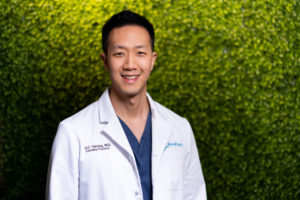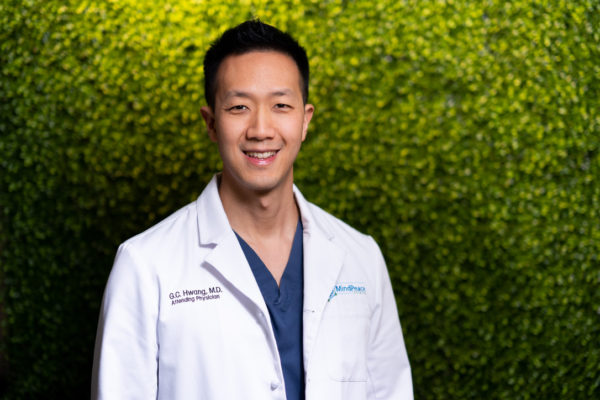 Health Matters is a biweekly opinion column. The views expressed are solely the author’s.
Health Matters is a biweekly opinion column. The views expressed are solely the author’s.
Fourteen years of school and training is needed to become a physician specializing in infectious disease. Yet when it comes to novel treatment for COVID-19, a former crack addict who has made millions selling pillows has as powerful a voice as a doctor.
The race for a cure presents both opportunities and challenges to how we evaluate novel treatments and we are witnessing how drug approval can go awry during a pandemic. As a doctor, it is frustrating and concerning to see so many Americans place their trust in politicians and entrepreneurs over evidence-based medicine. It leaves me wondering if the role of a physician, and science in general, is devalued.
In this case, without adequate scientific backing, President Trump expressed enthusiasm for the Food and Drug Administration (FDA) to approve an experimental botanical extract called oleandrin as a cure to COVID-19. MyPillow CEO Mike Lindell has been the biggest champion for oleandrin, stating “It’s an absolute miracle. I take it every day. I don’t get the virus. I have at least 50 to a 100 of my friends and family. Some that got it, and in two days they’re fine.” No, you’re not reading The Onion or watching a late-night infomercial starting with “from the maker of MyPillow…”
Turns out that Andrew Whitney, executive of oleandrin drug maker Phoenix Biotechnology, enlisted outspoken Trump donor Lindell, who also has financial stake in the company, to speed up approval. Lindell then got HUD Secretary Ben Carson aboard and arranged for a private meeting with Trump in July to tout how oleandrin can cure COVID.
In addition to anecdotal stories, Lindell and Whitney reference a study that suggested oleandrin can inhibit SARS-CoV-2 replication in monkey kidney cells in vitro. However, the study was not peer reviewed, not tested on humans and one of the authors was previously a chairman of Phoenix Biotechnology’s scientific advisory board. To date, there is no peer-reviewed randomized control trial in humans showing efficacy of oleandrin against COVID-19 — it could in fact be lethal — yet members of the administration want it thrust to the masses. Perhaps more concerning than the paucity of science is how easy it was for Lindell to push this product at the highest level.
We have seen this tactic before, in which entrepreneurs push unproven products as if it were a Shark Tank sales pitch in hopes that Trump will urge FDA Commissioner Stephen Hahn to expedite approval. For example, in March, Trump personally urged Hahn to authorize hydroxychloroquine for emergency treatment. The FDA obliged but later rescinded authorization after it was deemed ineffective and could actually cause serious heart arrhythmias.
The pandemic has prompted the FDA to create the Coronavirus Treatment Acceleration Program (CTAP) which aims to use every available method to move new treatments to patients as quickly as possible while concurrently assessing if the medicine is helpful or harmful. More than 570 drugs are in planning stages and more than 270 trials have been reviewed.
No treatment is currently FDA-approved for COVID, and only two treatments have emergency use authorization (EUA), one of which is remdesivir. CTAP and EUA allow for fast-tracking new potentially beneficial medications to the public with a modicum of scientific review, but it also exposes science to politics more than ever.
In an apparent need and willingness to abandon proven drug evaluation protocol, people will try anything and listen to a pillow guy. People will listen to a president who self-aggrandises his “natural talent” for science because of his “super genius” engineer uncle, while suggesting injecting bleach and UV light into the body. However, physicians are not absolved from guilt.
The “supergroup” of physicians gathered in front of the Supreme Court called “America’s Frontline Doctors” was nothing more than a political posture embellished with white coats. These doctors, who ranged from a alien conspiracist to non-practicing physicians, promoted dubious advice such as the ineffectiveness of masks, and many including the president took the bait by retweeting video of the summit. In a pandemic, the public will believe things they otherwise would not.
And who can blame the public? There have been retractions about facemasks, hydroxychloroquine and quarantining. Every day there seem to be new reports that contradict yesterday’s reports. As worldwide deaths surpass 785,000, the temptation to make unproven therapies widely available without rigorous clinical trials becomes increasingly tempting. In the end, this pandemic will leave behind a legacy of human and financial loss, but loss of respect for science should not be part of it.
Dr. George C. Hwang, known to his patients as Dr. Chaucer, is a practicing anesthesiologist who also helps to run Mind Peace Clinics in Arlington. He has written for multiple journals, textbooks and medical news outlets, and has been living in Arlington for the past 15 years.


